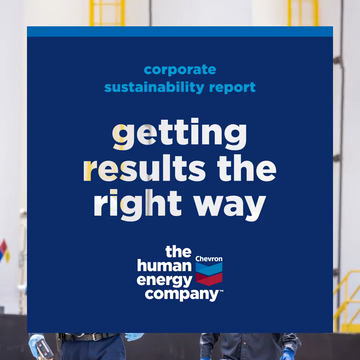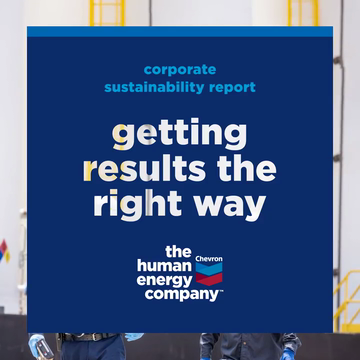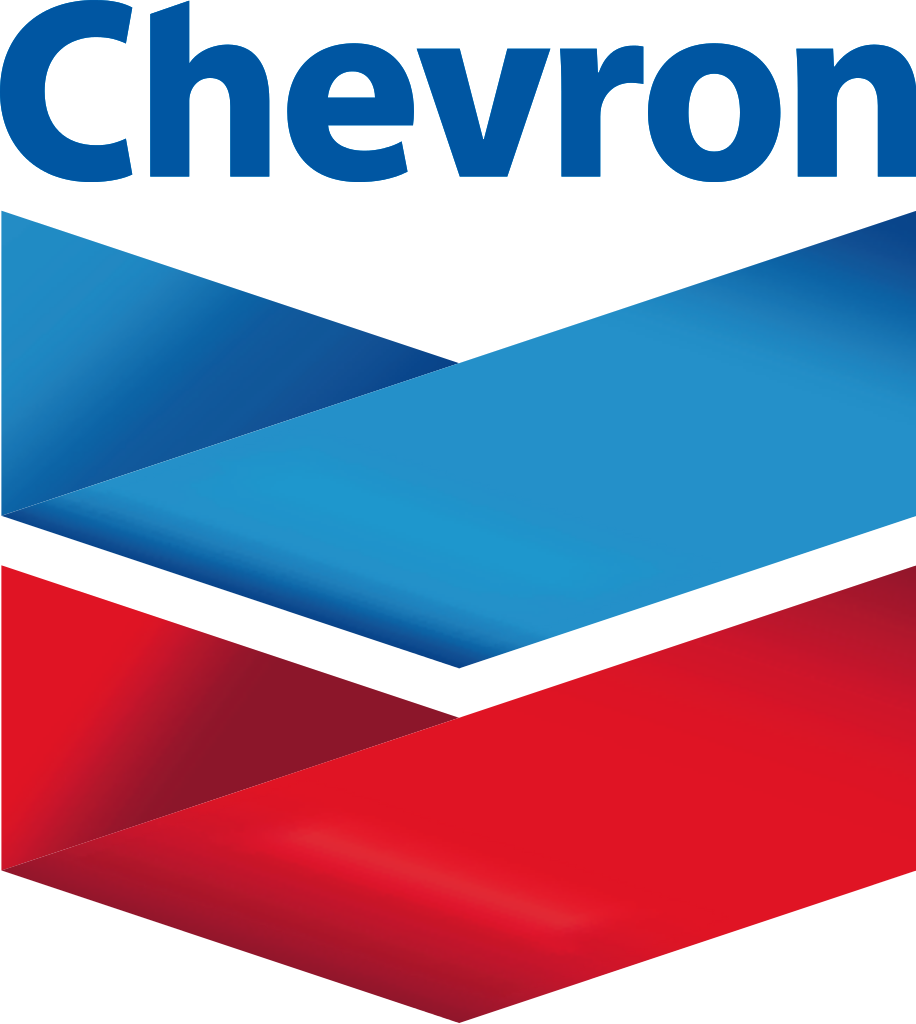Chevron 2021 Corporate Sustainability Report: Focusing on What Matters
stakeholder engagement and issue prioritization
Chevron 2021 Corporate Sustainability Report
Our sustainability reporting focuses on environmental, social and governance (ESG) issues that matter to our business and our stakeholders. Thoughtful engagement around priority issues (sometimes called “material issues” in the context of ESG reporting frameworks1) helps us assess and, where necessary, refresh our ESG strategy and commitments and validate priorities in relation to business risk and opportunities.
The content for our Corporate Sustainability Report (2021) was identified through issue prioritization processes and engagements with internal and external stakeholders throughout the year. To gain insight into ESG issues and reporting trends, we engage with numerous third-party groups, including: World Business Council for Sustainable Development, World Economic Forum, Business for Social Responsibility and Ipieca. In addition, we benchmark and obtain third-party reviews of our prior year’s Sustainability Report and send questionnaires to more than 100 internal subject matter experts and stakeholders to test our thinking. In 2021, we had more than 100 engagements with investors and other stakeholders in which a wide range of issues was discussed, such as climate change, corporate culture, cybersecurity, water, human capital management and employee mental health following COVID-19. As part of our reporting cycle, we provide relevant members of the Executive Leadership Team and senior management, the Global Issues Committee, and the Board’s Public Policy and Sustainability Committee with the opportunity to review and provide input to the planned content for our voluntary Sustainability Report.
Since 2020, we have partnered with Datamaran, an ESG risk identification and monitoring software company that uses a comprehensive data-driven process to identify, prioritize and monitor ESG issues. Its business intelligence tool aims to leverage artificial intelligence to incorporate a wide array of inputs, including corporate reports, global regulations, Sustainability Accounting Standards Board (SASB) metrics, social media and online news. We believe this tool is one of many useful inputs into our overall process for assessing the relevance of ESG issues and trends and that it helps us evaluate our alignment with diverse and sometimes competing stakeholder interests.
Commitment to transparency
We demonstrate our commitment to transparency by reporting metrics and performance data annually. To determine which metrics to include, we consider the reporting guidance, indicators and terminology of the SASB, Task Force on Climate-related Financial Disclosures (TCFD), Sustainability Reporting Guidance for the Oil and Gas Industry (2020) by Ipieca, the International Association for Oil & Gas Producers and the American Petroleum Institute, as well as other leading reporting frameworks. We have also disclosed our ESG data, including GHG emissions data, in the IHS Markit ESG Reporting Repository to enable investors and other stakeholders to efficiently compare ESG data across sectors and reporting frameworks in the absence of consistent mandatory reporting requirements.
Responding to our stakeholders
Our stakeholder engagement process has resulted in action in our business and enhancements to our reporting. These are but a few examples:
- In 2021, in response to a proxy proposal and investor feedback, we created an updated lobbying and trade association webpage that includes additional transparency on both lobbying and political contributions.
- Discussions with investors have shaped our reporting and led us to utilize SASB and TCFD frameworks for sustainability disclosures. Beginning in 2019, we enhanced our reporting by aligning our performance data table with the recommendations of the SASB voluntary framework, as reflected in our SASB index column. In 2020, we began considering how our data related to the core Stakeholder Capitalism metrics developed by the World Economic Forum. These enhancements help provide comparable information for investors and other stakeholders.
- Employees regularly express their thoughts and concerns to management through many formal and informal channels, including town hall meetings, employee pulse surveys and our Workplace platform. A recurring theme has been transparency and equity in job selection processes. Chevron identifies leaders to participate in our internal job selection meetings who act as a neutral third party focused on recognizing unconscious bias. The goal is to facilitate open discussions and bring more transparency to our decision-making processes.
Read the full Chevron 2021 Corporate Sustainability Report



